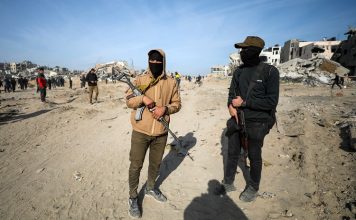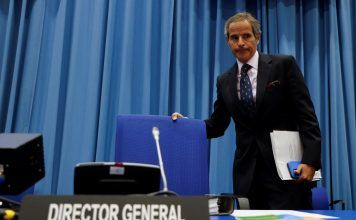The Trump administration imposed more sanctions on Iranian officials this week, which some experts said were triggered to put pressure on the Houthis, a Yemeni rebel group backed by the Iranian regime.
The new penalties target Iran’s envoy to the Houthis, Hasan Irlu, who is also an official within Iran’s Quds Force, which acts as the Islamic Revolutionary Guard Corps’ overseas arm. The Force is seen as a central element to the regime’s plans to gain influence in the Middle East.
The U.S. Treasury also blacklisted Iran’s Al-Mustafa International University, for allegedly using its network to recruit Quds Force members tasked with gathering intelligence and carrying out operations.
Iran’s president Hassan Rouhani said he would be willing to re-ignite discussions with parties to the existing 2015 nuclear deal, but would not enter into fresh negotiations to change the agreement.
Incoming U.S. President Joe Biden said his administration would welcome the resumption of talks on the understanding that the deal would be extended to address other areas of the regime’s conduct.
Biden said he would be speaking with U.S. allies and partners to ‘tighten and lengthen Iran’s nuclear constraints, as well as address the missile programme,’ in an interview with the New York Times, following the regime’s decision to breach set limits for uranium enrichment embedded in the deal.
And London-based NGO Justice for Iran released a database called “Faces of Crime.” The database offers information on alleged human rights violators in Iran, and was released on the fortieth anniversary of the 1979 referendum in Iran which paved the way for the establishment of the Islamic Republic.
The database was released in conjunction with a book series of the same name, which the NGO says works as a tool to enable people to raise awareness about human rights violations in Iran, hold perpetrators to account and bring about change inside the country.







